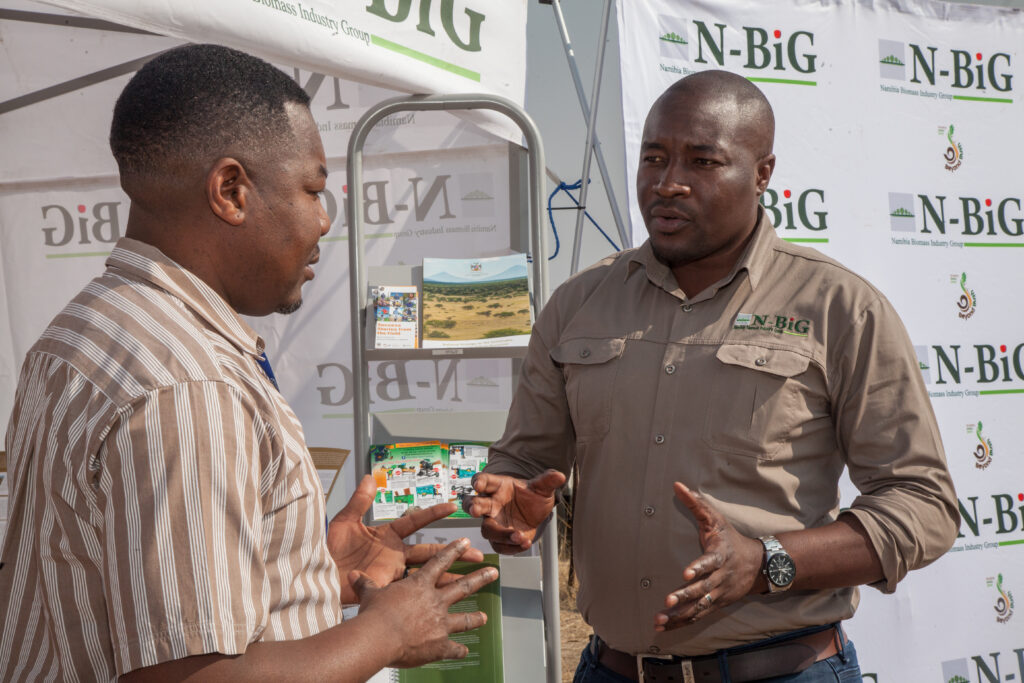Otjiwarongo, Namibia, 09 August 2024 – The Governor of Otjozondjupa Region, James Uerikua, and the Mayor of Otjiwarongo, Gottlieb Shivute, welcomed the participants of the 2024 Standard Bank Biomass Fair to Otjiwarongo on Thursday, 8 August. They called the city the ‘centre of a heavily bush encroached region’ and stressed the region’s commitment to utilising biomass for sustainable development.
The Standard Bank Biomass Fair is an annual event which brings together stakeholders to exchange best practices and knowledge on bush control and biomass utilisation. This year at the conference, 250 participants from Namibia, the southern African region and Europe discussed developments ranging from opportunities in international finance, implications of the European Union Deforestation Regulation, advances in environmental monitoring tools to local experiences with biochar.
The conference was followed by an Expo from 9 to 10 August. Hosting 120 exhibitors, the Expo demonstrated a wide range of biomass products and cutting-edge technology.
‘It has been an incredible year for the sector,’ Colin Lindeque, Chair of the Board of the Namibia Biomass Industry Group (N-BiG), pointed out. For example, in 2023, Namibia exported 270,000 tonnes of charcoal worth 1.3 billion NAD. At the same time, the charcoal industry is busy diversify and modernising – ‘Innovating for a greener future’ – which is also the motto of this year’s Standard Bank Biomass Fair.
Johnson Ndokosho, Director of Forestry at the Ministry of Environment, Forestry and Tourism (MEFT), gave insights into the ‘Communal Governance Framework and Forest Management Plan’ which will allow recognized community forests to apply for bush harvesting permits. The framework will be launched by the Ministry soon.
Titus Haihambo, Project Engineer at NamPower, updated conference delegates on the development of the 40 MW biomass power plant which the Namibian Power Utility is building at Tsumeb. Namibia imports more energy than it generates, so the biomass power plant will reduce the overreliance on imported energy and improve energy security for the country, he explained. The building contract for the 2.3 million NAD investment has been awarded and commercial operation is planned to commence in 2027. The power plant will utilise 180,000 tonnes of encroacher bush per year. While already 4 mayor harvesters have been contracted for a 7-year supply period, regulations from investors will ensure that there is scope for small and medium enterprises and local farmers to engage in harvesting and supplying.
While the sector is growing, Lindeque also pointed out that ‘we have more biomass today than we have ever had before. Nothing we have done so far has decreased the resource.’ With 45 million hectares of savanna bush encroached in Namibia, the annual regrowth rate is still much higher than the utilisation rate. ‘We have a lot of work to do,’ he concluded.

